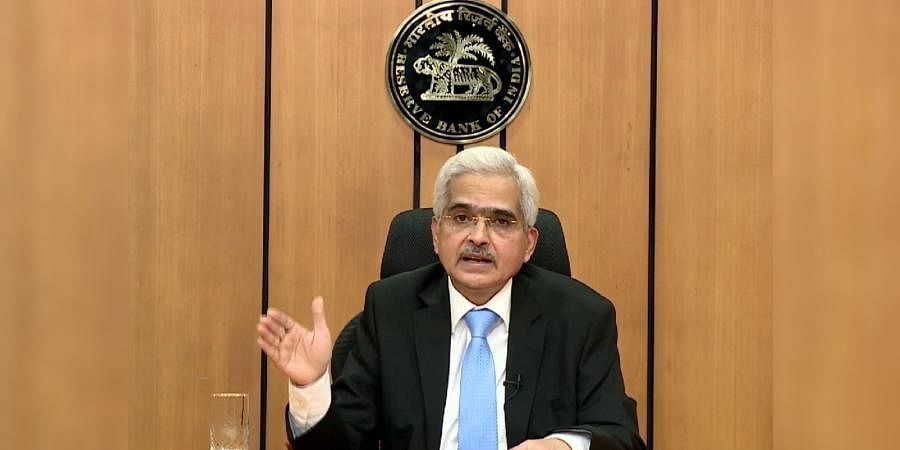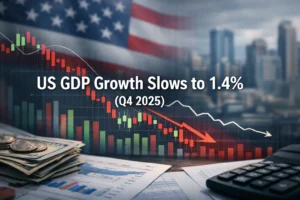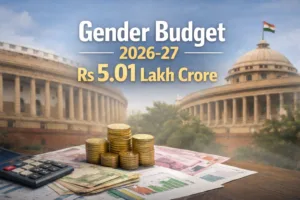
Reserve Bank of India’s monetary policy committee, led by Governor Shaktikanta Das, has decided to keep key interest rates unchanged at 6.50%. This announcement aligns with market expectations and maintains the status quo from the previous rate of 6.50%.
Governor Das highlighted several factors influencing this decision, including the global economic slowdown and disparities across different sectors and regions. Despite these challenges, he acknowledged the resilience of emerging economies. Additionally, inflation remains a concern, with many countries experiencing rates above their targets. Notably, major central bankers around the world are maintaining their rates amidst the volatility in markets.
The Reserve Bank of India (RBI) has opted to maintain its stance of ‘withdrawal of accommodation,’ as announced by RBI Governor Shaktikanta Das. This decision was supported by five out of six members of the Monetary Policy Committee (MPC). In simple terms, ‘withdrawal of accommodation’ typically implies a move towards less accommodative monetary policies, which might include measures like raising interest rates or reducing liquidity in the financial system.
Additionally, the RBI provided its economic outlook for the coming fiscal year. The real Gross Domestic Product (GDP) for the financial year 2023-24 is projected to be 7%, indicating optimism about economic growth. The quarterly GDP growth projections for the same period show a gradual decline from 6.5% in Q3FY24 to 6.4% in Q3 FY25. These figures suggest the RBI’s expectation for a steady but slightly moderating pace of economic expansion.
The Reserve Bank of India (RBI) has maintained its inflation forecast, with projections for fiscal year 2024 remaining at 5.40%. In the third quarter of FY24, CPI inflation is expected to be 5.6%, followed by a decrease to 5.20% in the fourth quarter. The outlook for the first two quarters of FY25 is 5.2% and 4%, respectively, with a slight uptick to 4.70% in Q3FY25.
Governor Das emphasized the need to monitor the food inflation trajectory, highlighting concerns about rising prices in key vegetables. He also pointed out the impact of elevated global sugar prices but noted the stabilization of domestic milk prices.
In response to the high utilization of marginal standing facility (MSF) and standing deposit facility (SDF) by banks, the RBI has proposed a measure. Starting December 30, 2023, the central bank will allow the reversal of liquidity facilities in both SDF and MSF during weekends and holidays.
RBI, has raised the UPI transaction limit for payments to hospitals and educational institutions to Rs 5 lakh per transaction, up from the previous limit of Rs 1 lakh per transaction.
Governor Shaktikanta Das announced that the RBI is introducing regulations for web-based loan product aggregation, aiming to enhance transparency in digital lending. The initiative includes a unified regulatory framework for connected lending across regulated entities, strengthening credit pricing.
Additionally, the RBI is establishing a fintech depository to support innovation in the financial sector. Furthermore, the central bank is working on a cloud facility to improve data security and privacy, set to roll out gradually over the medium term.
The recent RBI decision, navigating global uncertainties and uneven sectoral performance, emphasizes stability in a complex economic landscape. The cautious withdrawal of accommodation signals a prudent monetary policy, accompanied by positive GDP projections, reflecting optimism for the upcoming fiscal year.
In maintaining its inflation outlook, the RBI focuses on food inflation, considering global sugar prices and domestic milk price stabilization. Governor Das addresses liquidity facility utilization by allowing reversals on weekends and holidays to effectively manage the situation.

BBW News Desk is the editorial team of BigBreakingWire, a digital newsroom focused on global finance, markets, geopolitics, trade policy, and macroeconomic developments.
Our editors monitor government decisions, central bank actions, international trade movements, corporate activity, and economic indicators to deliver fast, fact-based reporting for investors, professionals, and informed readers.
The BBW News Desk operates under the editorial standards of BigBreakingWire, prioritizing accuracy, verified information, and timely updates on major global developments.


























Be First to Comment